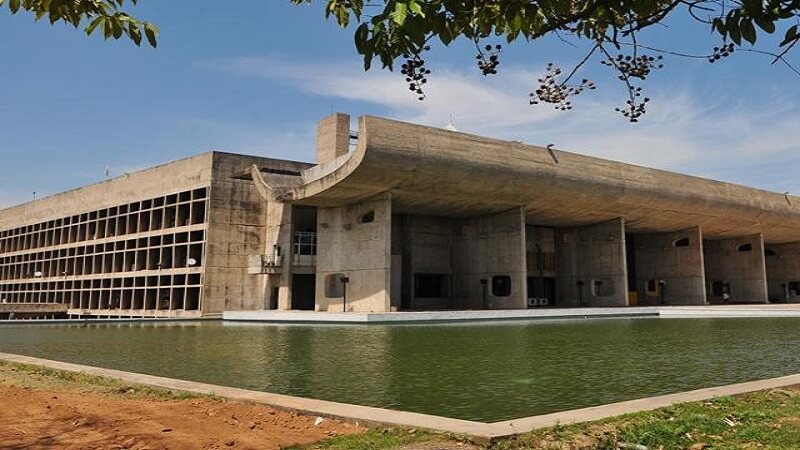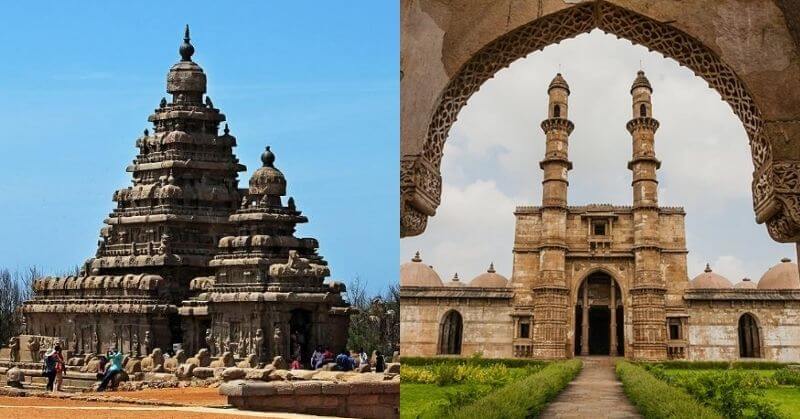India is home to 38 World Heritage Sites. India ranks sixth in the list with many UNESCO heritage sites. Here are some of the lesser-known UNESCO heritage sites in India that one should visit at least once.
1. Capitol Complex, Chandigarh


Le Corbusier is a well-known architect whose architectural work can be found across many countries. Chandigarh Capitol Complex is also designed by Le Corbusier. It is a government compound located in sector-1 of Chandigarh city of India. It was recognized as a World Heritage Site in 2016. Capitol Complex covers an area of 100 acres, and it consists of three essential government buildings: Legislative Assembly, Secretariat building, and the High court. It also includes four monuments: Open Hand Monument, Geometric Hill, Tower of Shadows, and the Martyrs and a lake.
2. Champaner-Pavagadh Archaeological Park, Gujarat
Champaner – Pavagadh Archaeological Park is the UNESCO World Heritage site situated in Panchamahal district in Gujarat. It hosts 11 different types of heritage monuments. The 11 monuments are Mosques, Temples, Tombs, Gateways, Fortresses and walls, Palaces and Pavilion, Helical wells, and Custom houses. All these monuments are belonging to the 16th century. It also houses some of the ancient Chalcolithic Indian Sites. It was added to the World Heritage Site list in 2004. The Kalika Mata temple is located on top of Pavagadh hill. The Pavagadh hill stands at the height of 800 meters.
3. Khangchendzonga National Park, Sikkim
Khangchendzonga National Park is also known as Kanchenjunga Biosphere Reserve, located in the North and West Sikkim districts in the beautiful Indian state of Sikkim. It was added to the UNESCO Heritage Sites list in 2016. It becomes the first “Mixed Heritage” site of India. The Khangchendzonga National Park also includes the Kanchenjunga Peak, the third-highest peak globally. The height of the mountain is 8536 meters. The total area covered by this park is about 850 km square. It is home to more than 500 lovely species of birds. The animals like snow leopards and Himalayan musk deer can be seen in this park. The monsoon showers can be seen from May to mid-October and can see heavy snowfall during winter.
4. Bhimbetka Rock Shelters, Madhya Pradesh
Bhimbetka rock shelter is one of the World Heritage sites lesser known to people. It was declared as a world heritage site in 2003. The earliest trace of human life was discovered in the rock shelters of Bhimbetka. It is situated in the Raisen District in the Indian state of Madhya Pradesh. The rock shelters consist of a group of 5 rocks featured with cave paintings of about 10000 years old, related to the Mesolithic period. The cave paintings show the presence of animals, evidence of dance and hunting.

